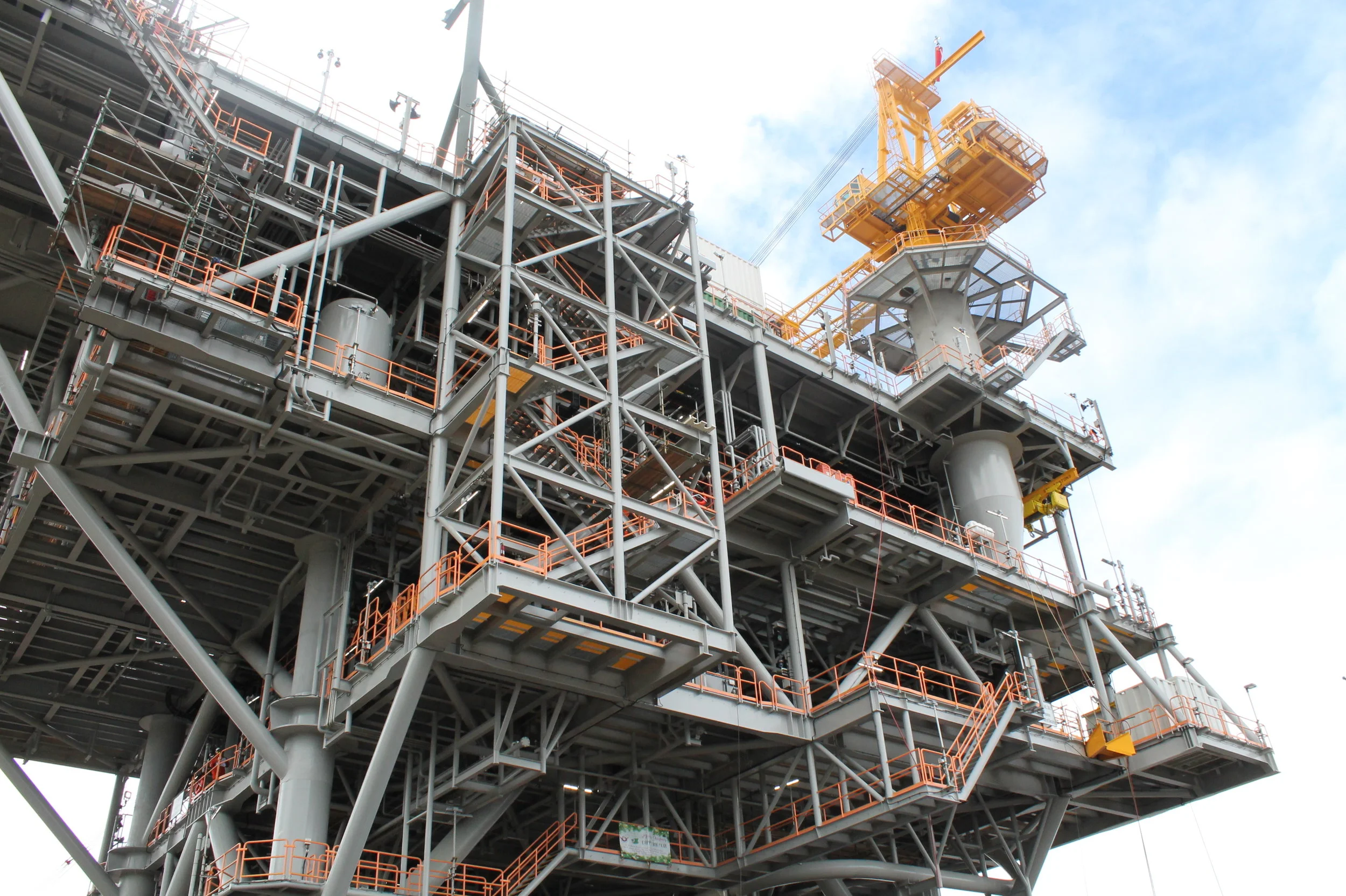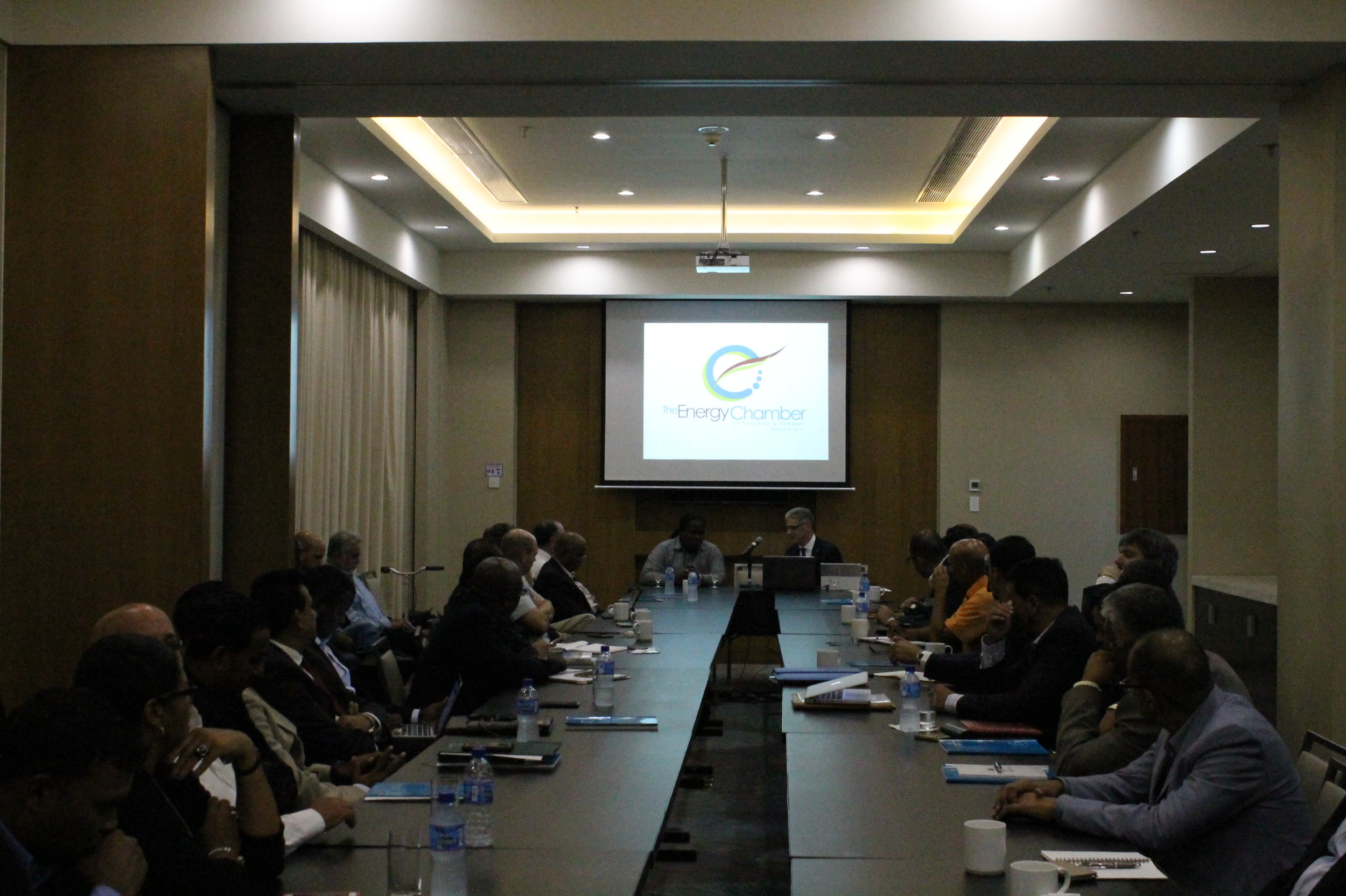BHP has recently moved its North American Petroleum Accounting and Reporting functions from Houston to Port of Spain, Trinidad and Tobago. At first sight, this may not seem a particularly newsworthy event, but the relocation of this important function represents a rare win in Trinidad and Tobago’s national diversification strategy, which has emphasised the development of service exports to complement the traditional export of oil, gas and petrochemicals. By relocating accounting services from Houston to Port of Spain, BHP will be exporting accounting services from Trinidad and Tobago to the USA and other countries in the region.
The signing of the first Local Content Charter took place during the opening ceremony of the Trinidad and Tobago Energy Conference 2017 hosted by the Energy Chamber. This signalled a commitment from the major operator companies in the energy sector to develop and implement local content initiatives that will serve to strengthen the energy services sector.
The Angelin project will be BP’s next major project in Trinidad and Tobago, following on from Juniper. Although Angelin has not yet been officially sanctioned, BP has begun submitting documents to the Environmental Management Authority (EMA) in Trinidad outlining the project development.
Methanol prices are once again climbing. Currently, they are higher than they have been in almost a year. The graph below shows the Methanex non-discounted price (USD), pegging the current price at $416/MT. It has not been at this price since August 2015.
At the Energy Conference, Slattery said that she was very encouraged by the large potential gas resource found at the LeClerc field (in block TTDAA5). She also mentioned that significant gas discoveries in the near term have the potential to hit the market in early to mid-2020’s. This is welcome news for Trinidad and Tobago’s gas-starved LNG and downstream sector.
With the Shell acquisition of BG completed, many people in the energy industry have been curious about Shell’s plans in Trinidad and Tobago. While Shell has had over 100 years’ presence in the country, there has been a lot of speculation about how, and even if, Trinidad and Tobago would feature in Shell’s future.
One of the major issues of discussion at the recently concluded Trinidad and Tobago Energy Conference 2017, was the institutional capacity of key government regulatory agencies. Trinidad and Tobago is facing the prospect of further significant declines in gas production from 2019 onwards, unless final investment decisions are taken immediately to develop new gas fields, such as bpTT’s Angelin project. These major investment decisions by international oil and gas companies rely upon timely decision-making by the government of Trinidad and Tobago.
The long-standing natural gas supply shortages have at last caught the attention of the Trinidad and Tobago public, with the decision of Methanol Holdings (Trinidad) Limited (MHTL) to shut down two of its five methanol plants on the Point Lisas Industrial Estate. Industrial Plant Services Limited (IPSL), who manages the plants for MHTL, has informed the Ministry of Labour that they will have to lay off workers in response to the plant closures.
The installation of two new engines at the Penal Power Station will help alleviate the country’s gas shortage as less gas will be needed in power generation, says Surindranath Ramsingh, general manager at the Power Generation Company of T&T (PowerGen).
The decision by Methanol Holdings Trinidad Ltd (MHTL) to close two of its methanol plants at the Point Lisas Industrial Estate has confirmed what many in the energy sector have known for some time—that the T&T natural gas sector is in trouble and, by extension, the country’s economy.
Undeniably, 2016 proved to be a challenging year for the global energy sector with worldwide energy markets experiencing the disruptive effects of depressed commodity prices. Trinidad and Tobago’s natural gas sector, was not spared the impact of global trends and its challenges were in fact compounded by ongoing gas curtailment issues. The situation of reduced natural gas supply to downstream consumers has been plaguing the local sector since 2010 and analyses of the current and predicted climate indicate that it will continue into 2017. As a result, securing the volumes required to maintain and support the demands of the industry remains a critical priority for NGC.
The Caribbean nation states are well positioned to make a transformational shift toward low-carbon development, but lack the investment capital required to do so. The idea of a Caribbean carbon market (CCM) was originally mooted within the Energy Chamber of Trinidad and Tobago (ECTT), an energy sector NGO, representing the oil, gas, petrochemical and heavy industrial sectors in 2014.
Globally respected consulting firm Rystad Energy was recently commissioned by the Energy Chamber to conduct a study into the competitiveness of the Trinidad and Tobago gas industry. The study highlights the significant challenges faced by the country’s gas industry, both in terms of international competition (in particular from US shale gas) and the problem of under-investment in upstream gas development, leading to significant shortfalls in production.
LGO has been faced with difficult decisions this past year – the company was even forced to halt salaries to its directors for the past 15 months – but following a recent announcement about the refinancing of its loan facility, the company also said that drilling activity will resume at the Goudron field in Trinidad. The refinancing sees LGO shift lenders, and now that the company is no longer in default, it is now able to pursue a healthy drilling programme in 2017.
A decade after its first attempt to buy the Teak, Samaan and Poui (TSP) fields off Trinidad’s southeast coast, Anglo-French operator Perenco has announced that it has acquired a 70% operator interest in the blocks from Repsol. Perenco, in partnership with Trinidad-based conglomerate Massy, had originally made an offer to purchase the fields from bpTT, but that offer was pre-empted by Spanish oil company Repsol, which is a 30% shareholder in bpTT. Repsol acquired a 70% operator interest in the three fields, with the state-owned National Gas Company (NGC) and Petroleum Company of Trinidad and Tobago Limited (Petrotrin) both owning 15%.
Range Resources, an onshore operator in Trinidad’s Morne Diablo field, has encountered success in its last well in its latest five well drilling campaign for 2016. Range actually reached oil producing depth early in its GY681 well, which, as a result, is set to lower drilling costs. The target depth was 4,500 feet, but the company achieved success more than 100 feet sooner, at 4,395 feet. Production testing is scheduled to commence this month to determine the production potential of the well.
In the aftermath of what must be one of the world’s shortest-ever strikes, Trinidad and Tobago’s Prime Minister, Dr. Keith Rowley has outlined the government’s intentions to introduce external capital investment into upstream oil production at stateowned Petrotrin. The strike, which was cancelled just hours after it begun, was called by the oil workers’ union to demand the settlement of wages for two three-year collective bargaining periods.
The future of Trinidad and Tobago’s gas industry relies on the ability to attract significant new investment into upstream gas production. Rystad Energy, a consultancy firm, has recently concluded a study of the competitiveness of the Trinidad and Tobago gas economy, commissioned by the Energy Chamber. The study, summarised in an article on Page 8 of EnergyNow, clearly highlights the serious challenges faced by the Trinidad and Tobago gas economy.
Construction of the much-anticipated Juniper platform has been completed and the topside has been loaded out from the Trinidad Offshore Fabricators (TOFCO) facility in La Brea, for installation in its permanent location off Trinidad’s southeast coast. The jacket for the platform, which was originally supposed to be constructed in La Brea but was moved to a yard in the United States (US) after early project delays, has also been transported back to Trinidad ready for installation.
Exxon announced today positive results from its Payara-1 well offshore Guyana. Payara is ExxonMobil’s second oil discovery on the Stabroek Block and was drilled in a new reservoir. The Payara-1 well targeted similar aged reservoirs that were proven successful at the company’s Liza discovery.





















